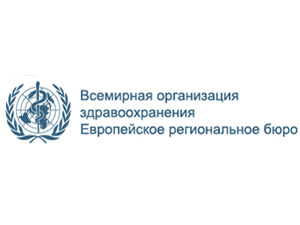News & Events in Belarus
WHO Regional Office for Europe member states sign Minsk Declaration

MINSK, 22 October (BelTA) - The adoption of the life-course approach across the whole of government would improve health and well-being, promote social justice, and contribute to sustainable development and inclusive growth and wealth in all countries, reads the Minsk Declaration, the outcome document of the WHO European Ministerial Conference. It was signed by Director of the WHO Regional Office for Europe Zsuzsanna Jakab and Belarus’ Health Minister Vasily Zharko at the closing ceremony of the conference, BelTA has learned.
All 53 countries of the WHO European region unanimously agree that the life-course approach is an essential step towards the implementation of Health 2020 and the Sustainable Development Goals. “We commit to early, appropriate, timely, and collective action as our agenda for strengthening the life-course approach to public policy and services in our countries.” The adoption of the life-course approach across the whole of government would improve health and well-being, promote social justice, and contribute to sustainable development and inclusive growth and wealth in all countries.
Acting early component is based on the knowledge that the earliest years of life set the tone for the whole of the lifespan. “Investment in early childhood development, and protection against toxic stress and dangerous environmental exposure at critical points of development are among the most cost-effective policy choices available to governments,” reads the documents.
Acting appropriately during life’s transitions means taking timely action to protect health during life’s many transitions which is also investment in the future. Effective intervention is also essential to modify the course of other critical phases in life in which people experience dramatic changes in roles and status, such as pre-conception and pregnancy, the first move from family to the early learning setting, the transition from adolescence to adulthood, entry into the workforce, changes in relationship or employment status, including retirement, and the onset of functional limitations, physical or mental disabilities.
Acting together implies that collective solutions are needed, involving actions by the whole of society: all sectors of government, academia, civil society, the private sector, and the media.
To implement each of the principles the priority actions and measures have been developed.
The participants of the conference expressed confidence that the adoption of the Minsk Declaration will serve as a guarantor of openness, the willingness of the parties to share their experience and commitment to joint efforts to improve health at all stages of human life. This is really a historic moment not only for Belarus’ health system but the healthcare systems of all countries in the WHO European region since the Minsk Declaration defines the policy for their development up to 2020.
According to Health Minister Vasily Zharko, the Republic of Belarus took an active part in the preparation of the Minsk Declaration. "Belarus is already implementing many of the principles laid down in the declaration. You can see for yourself what results we have achieved, for example, in reducing the maternal and child mortality rates. Of course, the European countries have their own experience, and we will make use of it,” he said.
According to the minister, the declaration is an interdepartmental document. It lays does the basis for healthcare but also for other sectors, including education, the economy, finance, the environment. "In our country, we will strengthen the preventive effort and primary care," said Vasily Zharko.
The WHO European Ministerial Conference on the Life-course Approach in the Context of Health 2020 was held in the headquarters of the National Olympic Committee in Minsk on 21-22 October. The organization of such an important event in Minsk shows that the WHO has a high opinion of the healthcare system of Belarus. Belarus is a full-fledged member of the WHO. An office of the WHO Regional Office for Europe was opened in the country in 1994. The country fully supports the WHO policy in health protection.







 print version
print version make home page
make home page add to bookmarks
add to bookmarks

